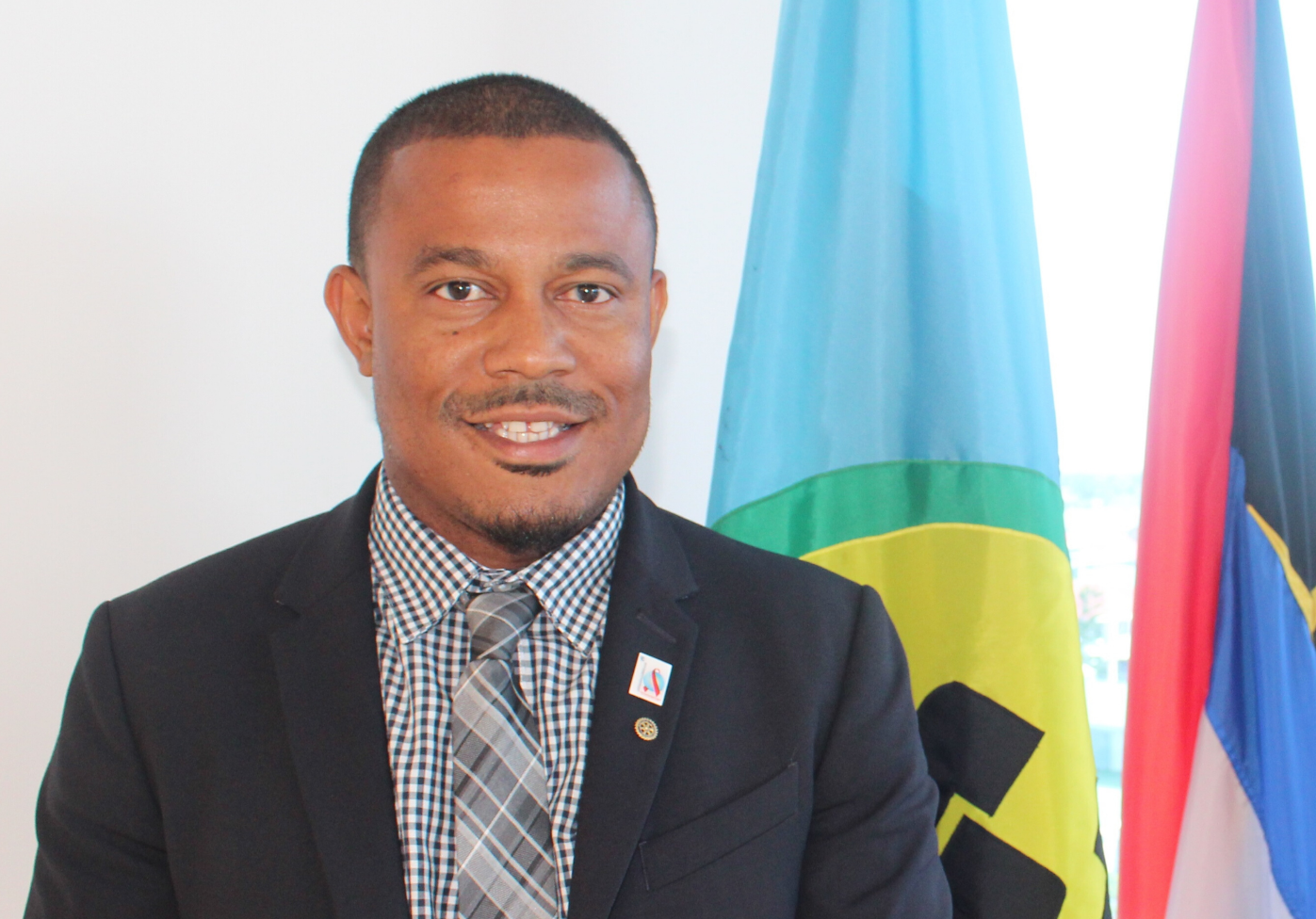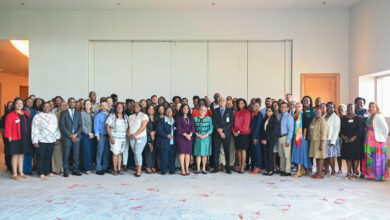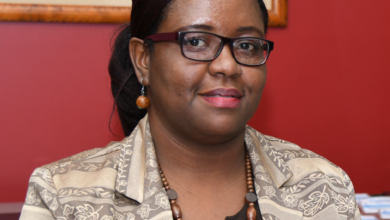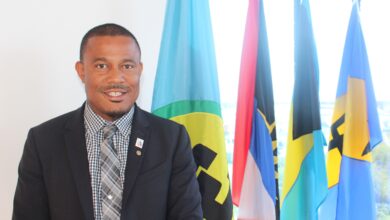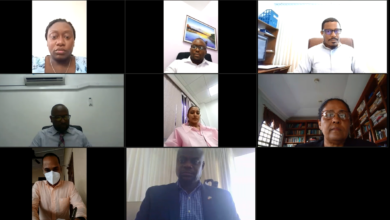It gives me great pleasure to present these brief remarks on next steps on behalf of the Pan Caribbean Partnership against HIV and AIDS (PANCAP) at this virtual launch of the UNAIDS Global AIDS Update 2020.
As COVID-19 rapidly spreads, the global HIV community is increasingly concerned about the potential impact of COVID-19 on the 37.9 million People Living with HIV globally. Indeed, the Caribbean Region is aware of the potential threat that COVID-19 will have on advancing progress towards ending AIDS in the region.
This report comes at an important time when we are faced with so many uncertainties in this very vulnerable corner of the globe. In addition to COVID-19, the region is faced by slow economic growth, which will present a challenge for financing and sustaining national and regional HIV/AIDS response. Additionally, other health sector challenges such as the rising burden of non-communicable diseases, the impact of climate change on health and the ever-looming threat from natural disasters are just a few examples.
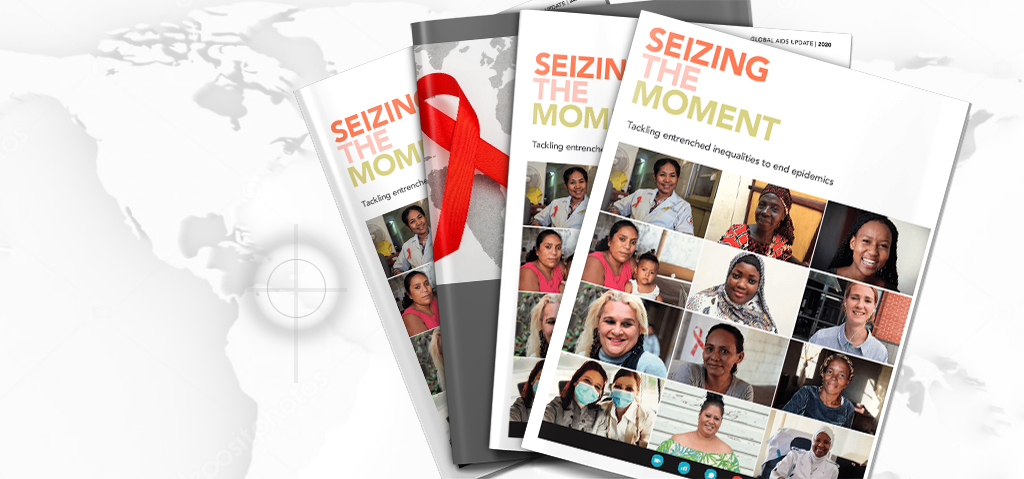
The theme of this year’s report is, “Seizing the Moment: Tackling entrenched inequalities to end epidemics”. As we continue to maneuver the challenges of COVID-19, this theme is very fitting for us to look for the opportunities that the pandemic has presented and to seize the moment to accelerate action in filling gaps that exist in the regional response to ending the epidemic.
While the report highlighted that the Caribbean region has made progress in reducing new HIV infections and AIDS-related deaths and great strides have been made towards the Elimination of Mother-to-child HIV transmission, progress across the testing and treatment cascade has slowed. Awareness of HIV status is the first step in accessing care but is also a potential prevention tool and a way to normalise and destigmatise HIV. Therefore, any action on HIV must start with testing and awareness of one’s status.
Likewise, we have to focus on interventions aimed at improving linkage to and retention in HIV care to achieve the greatest reductions in HIV incidence especially among Key Populations as they are the drivers of the epidemic in the region accounting for 60% of new infections.
It is important to note that if we are to end AIDS and even eliminate a number of communicable diseases especially those referenced by the SDG-3, we must tackle the entrenched inequalities that stand in the way of progress. The HIV epidemic, as we know has been unusual in the extent to which discourse about its epidemiology has been linked to poverty and inequalities. This virus thrives on inequality.
Adolescents and young people, particularly girls and young women, must be the focus of any meaningful response. They are subjected to poor access to healthcare and education, limited empowerment, representation and opportunities to contribute to decision making with partners, family members and communities. Issues such as gender-based violence, harmful cultural norms, stigma and discrimination put them at increased risks.
Addressing the needs of Key Population is also critically important. Access to care in most of our countries is hindered by several factors including criminalisation of same-sex relationships, hostile communities, homophobic discrimination and violence, external and internal stigma, and limited health education.
We must also not forget men. There are many cultural and social norms that are proving to be obstacles to prevention and control among Caribbean men. Partially to blame is the “macho” culture that influences Caribbean men to suppress awareness of their bodies and not to show emotions or vulnerabilities. This puts them at increased risk and can result in not accessing care, not testing and loss to follow up.
We must continue our ongoing efforts to accelerate equitable HIV incidence decline.
Finally, I want to touch briefly on the 90-90-90 Targets. The region is lagging in these targets. According to the report, 77% of People Living with HIV (PLHIV) know their status, 81% of people who know their status are on treatment and 80% of PLHIV on treatment are virally suppressed with only 50% of all PLHIV are virally suppressed. These gaps must be filled. We must get these bars rising.
Another worrying challenge is that of data to guide strategic interventions. Significant data challenges exist in the region ranging from data quality and the timeliness of data. Go down to the granular level. 90-90-90 at the site level.
Supply chain management must be strengthened to ensure continued access to ARVs and other commodities.
Ending AIDS and addressing STIs requires a coordinated multisectoral regional response as articulated in the Caribbean Regional Strategic Framework (CRSF) – 2019-2025. The CRSF is our blueprint towards ending AIDS, and it highlights policies and programmes to accelerate progress for achieving the UNAIDS 90-90-90 Targets to Test, Treat and Defeat AIDS, to which the region has committed.
We also hold strong to our Justice for All programme that was launched in 2015 to promote activities consistent with the UN Universal Declaration of Human Rights to which all countries are committed. It is intended to achieve one of the goals of the United Nations High-Level Meeting Political Declaration (2011) to eliminate stigma and discrimination against PLHIV by 2015 and to uphold the human rights and dignity of all.
PANCAP will continue to support the regional response by working with National Programmes, Key Partners and Civil Society Organizations, FBO etc. We will address these challenges and work to break down the inequality barriers and other barriers that can hinder our move towards ending AIDS in the region.

